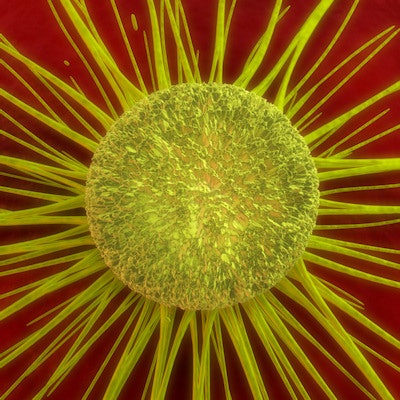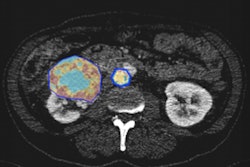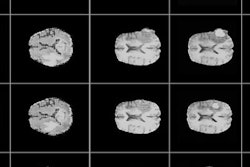
An artificial intelligence (AI) algorithm can analyze a radiomic-based biomarker on CT scans to predict how cancer patients will responds to immunotherapy, French researchers reported in an article published online on 14 August in the Lancet Oncology.
Using four independent cohorts of patients with advanced solid tumors, researchers tested a machine-learning algorithm that could predict immunotherapy response after analyzing CT studies for a radiomic signature defined by the level of a tumor's lymphocyte infiltration. The researchers were from the Comprehensive Cancer Center Gustave Roussy, Paris-Sud University, the French National Institute for Health and Medical Research (Inserm), CentraleSupélec, and CentraleSupélec AI technology spin-off TheraPanacea.
While approximately 15% to 30% of these cancer patients respond to antiprogrammed cell death protein (PD)-1/antiprogrammed cell death ligand 1 (PD-L1) immunotherapy, prior studies have shown the richer the tumor environment is immunologically -- i.e., the presence of lymphocytes -- the greater the chance that immunotherapy will be effective. As a result, the French researchers set out to use imaging information to characterize this environment and develop an imaging biomarker for predicting immunotherapy response.
They initially taught the machine-learning algorithm to use relevant information extracted from the CT scans of 135 patients with solid malignant tumors from the Molecular Screening for Cancer Treatment Optimization (MOSCATO) study, which also included tumor genome data. Based solely on the images, the algorithm then learned to predict what the genome might have revealed about the tumor immune infiltrate -- specifically, the presence of cytotoxic T-lymphocytes (CD8) in the tumor -- and established a radiomic signature. This signature was tested and validated in other cohorts, including the Cancer Genome Atlas, and showed it could predict the degree of immune infiltration of a tumor, according to the researchers.
In the last phase of the study, the researchers tested the algorithm's predictive performance for immunotherapy response on 137 patients who had received anti-PD-1 and anti-PD-L1 monotherapy in phase 1 clinical trials by analyzing the radiomics scores the algorithm generated. They found that patients in whom immunotherapy was effective at three and three months had higher radiomics scores than those that didn't respond to the treatment. What's more, higher radiomics scores were also associated with better overall survival.
| Predictive power of AI algorithm for patients receiving immunotherapy | ||
| Patient group with low radiomic scores | Patient group with high radiomic scores | |
| Median survival | 11.5 months | 24.3 months |
"Our imaging biomarker could be useful in estimating CD8 cell count and predicting clinical outcomes of patients treated with immunotherapy when validated by further prospective randomized trials," wrote the researchers led by Dr. Roger Sun and Dr. Elaine Johanna Linkin of Gustave Roussy Cancer Campus in Villejuif.
In their next clinical study, the researchers plan to evaluate the radiomics signature both retrospectively and prospectively, using larger number of patients and stratifying them by cancer type in order to further refine the signature, according to a statement from Gustave Roussy.
What's more, they plan to make use of more sophisticated AI algorithms to predict immunotherapy response. Data from imaging, molecular biology, and tissue analysis will also be integrated into the initiative, according to the researchers.



















